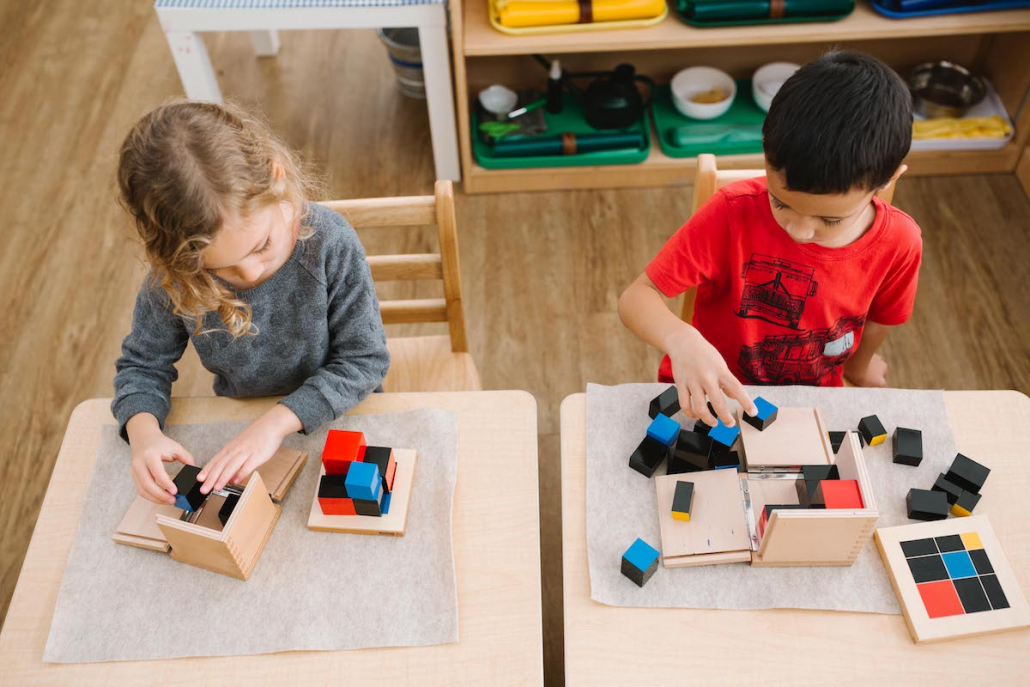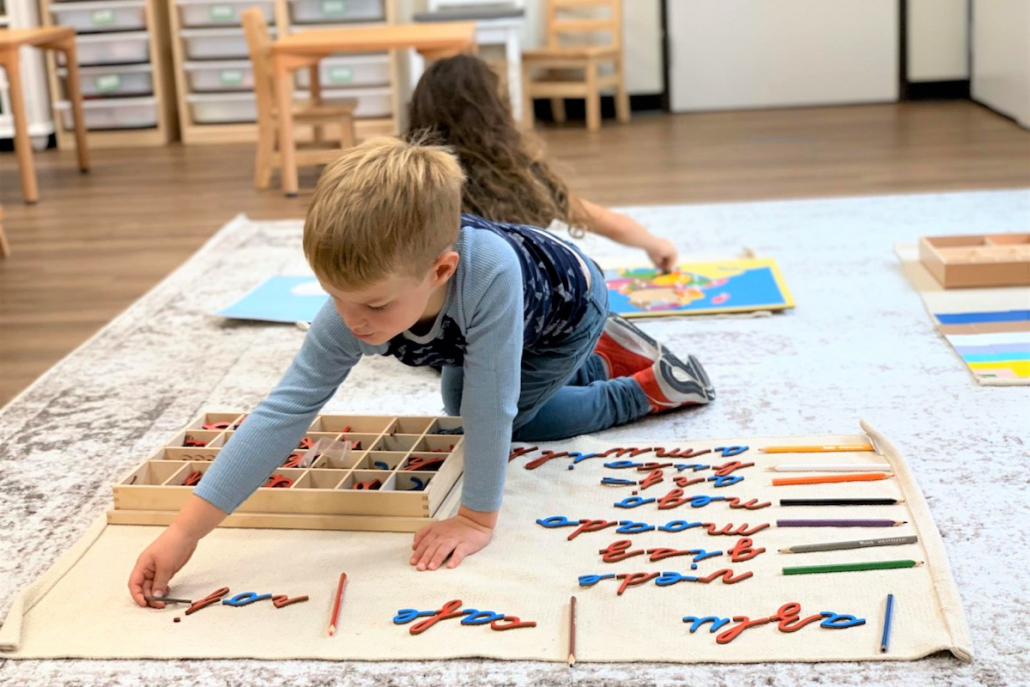
Montessori for new parents and babies
Guidepost Montessori will be hosting a series of Parenting Workshops that aim to support families as they navigate parenthoodIn collaboration with Guidepost Montessori
Developed by Italian physician Maria Montessori, Montessori is a method of education that is rooted in self-directed activity with hands-on learning at its core.
Read more: A parent’s perspective on Guidepost Montessori
The approach emphasises the importance of fostering independence with the assumption that children are naturally eager for knowledge and capable of initiating learning in a structured environment. Classes follow a scientifically designed curriculum, tailored to individual interests and abilities with a focus on the whole child.
But the Montessori curriculum doesn’t just start from school, parents can adopt the principles of Montessori from birth and at home. Maria Montessori believed that the first 24-years of life are crucial to support children in becoming well-adjusted citizens and must begin from birth.

Before a child learns how to walk, they learn how to engage their muscles and coordinate their body that gets them to a place where they can use their legs like the adults around them do. The Montessori program believes babies are wired to learn through their senses: the scent of a parent, the sound of the birds, the sight of bright lights and the touch of grass.
Babies are biologically wired to adapt to their surroundings by acting on these drives that help them make sense of the world. To better understand what babies are capable of, the Montessori curriculum acknowledges the human tendencies and natural drives we all have, including orientation, association with others, communication and exploration.
From extensive research, Montessori discovered two distinct abilities of early childhood that work in tandem with these natural drives. The absorbent mind and sensitive periods.

1. The absorbent mind
Infants and young children share a time-sensitive “absorbent mind,” where the capacity to learn is as effortless as it will ever be. Often compared to a sponge, babies can soak up knowledge around them just by being in their environment. Conscious learning doesn’t kick in until around age three and before that, they are “unconscious learners.” They can’t remember learning during this time, but they are building the foundations for future learning.
2. Sensitive Periods
These are times of intense interest in acquiring particular skills, like language, order, movement, and social relations. During these windows, babies and young children are intrinsically driven to master related skills. If they overreach with their agendas or miss these windows, it can make learning – and parenting – harder than it needs to be.
With these abilities in mind, Guidepost Montessori will be hosting a series of Parenting Workshops (Visit here to sign up for upcoming workshops) over the coming months that aims to support families as they navigate parenthood to make the most out of those crucial learning years.




